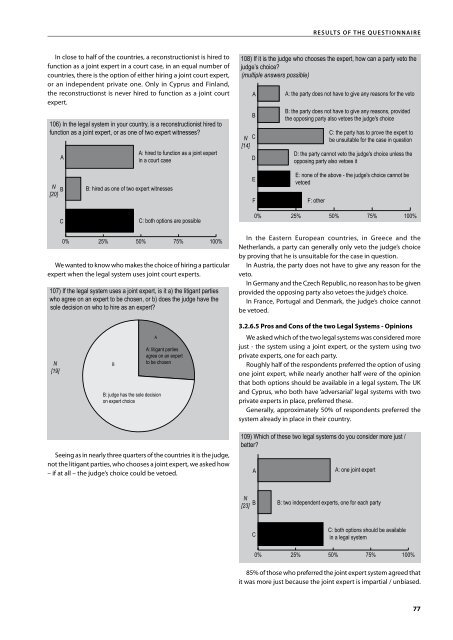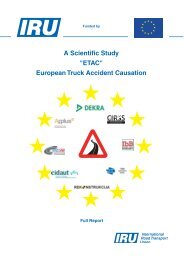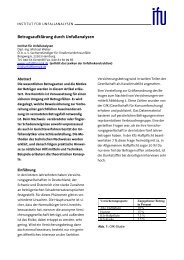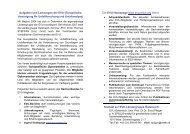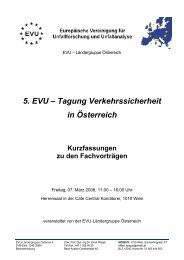THE QUERY PROJECT - European Commission - Europa
THE QUERY PROJECT - European Commission - Europa
THE QUERY PROJECT - European Commission - Europa
You also want an ePaper? Increase the reach of your titles
YUMPU automatically turns print PDFs into web optimized ePapers that Google loves.
In close to half of the countries, a reconstructionist is hired to<br />
function as a joint expert in a court case, in an equal number of<br />
countries, there is the option of either hiring a joint court expert,<br />
or an independent private one. Only in Cyprus and Finland,<br />
the reconstructionst is never hired to function as a joint court<br />
expert.<br />
106) In the legal system in your country, is a reconstructionist hired to<br />
function as a joint expert, or as one of two expert witnesses?<br />
N<br />
[20]<br />
A<br />
B<br />
C<br />
B: hired as one of two expert witnesses<br />
A: hired to function as a joint expert<br />
in a court case<br />
C: both options are possible<br />
0% 25% 50% 75% 100%<br />
We wanted to know who makes the choice of hiring a particular<br />
expert when the legal system uses joint court experts.<br />
107) If the legal system uses a joint expert, is it a) the litigant parties<br />
who agree on an expert to be chosen, or b) does the judge have the<br />
sole decision on who to hire as an expert?<br />
N<br />
[19]<br />
B<br />
B: judge has the sole decision<br />
on expert choice<br />
A<br />
A: litigant parties<br />
agree on an expert<br />
to be chosen<br />
Seeing as in nearly three quarters of the countries it is the judge,<br />
not the litigant parties, who chooses a joint expert, we asked how<br />
– if at all – the judge’s choice could be vetoed.<br />
A<br />
B<br />
C<br />
D<br />
E<br />
F<br />
R E S u lt S o f t h E Q u E S t I o n n A I R E<br />
108) If it is the judge who chooses the expert, how can a party veto the<br />
judge’s choice?<br />
(multiple answers possible)<br />
N<br />
[14]<br />
A: the party does not have to give any reasons for the veto<br />
B: the party does not have to give any reasons, provided<br />
the opposing party also vetoes the judge's choice<br />
F: other<br />
C: the party has to prove the expert to<br />
be unsuitable for the case in question<br />
D: the party cannot veto the judge's choice unless the<br />
opposing party also vetoes it<br />
E: none of the above - the judge's choice cannot be<br />
vetoed<br />
0% 25% 50% 75% 100%<br />
In the Eastern <strong>European</strong> countries, in Greece and the<br />
Netherlands, a party can generally only veto the judge’s choice<br />
by proving that he is unsuitable for the case in question.<br />
In Austria, the party does not have to give any reason for the<br />
veto.<br />
In Germany and the Czech Republic, no reason has to be given<br />
provided the opposing party also vetoes the judge’s choice.<br />
In France, Portugal and Denmark, the judge’s choice cannot<br />
be vetoed.<br />
. .6. Pros and Cons of the two legal Systems - Opinions<br />
We asked which of the two legal systems was considered more<br />
just - the system using a joint expert, or the system using two<br />
private experts, one for each party.<br />
Roughly half of the respondents preferred the option of using<br />
one joint expert, while nearly another half were of the opinion<br />
that both options should be available in a legal system. The UK<br />
and Cyprus, who both have ‘adversarial’ legal systems with two<br />
private experts in place, preferred these.<br />
Generally, approximately 50% of respondents preferred the<br />
system already in place in their country.<br />
109) Which of these two legal systems do you consider more just /<br />
better?<br />
N<br />
[23]<br />
A<br />
B<br />
C<br />
A: one joint expert<br />
B: two independent experts, one for each party<br />
C: both options should be available<br />
in a legal system<br />
0% 25% 50% 75% 100%<br />
85% of those who preferred the joint expert system agreed that<br />
it was more just because the joint expert is impartial / unbiased.


